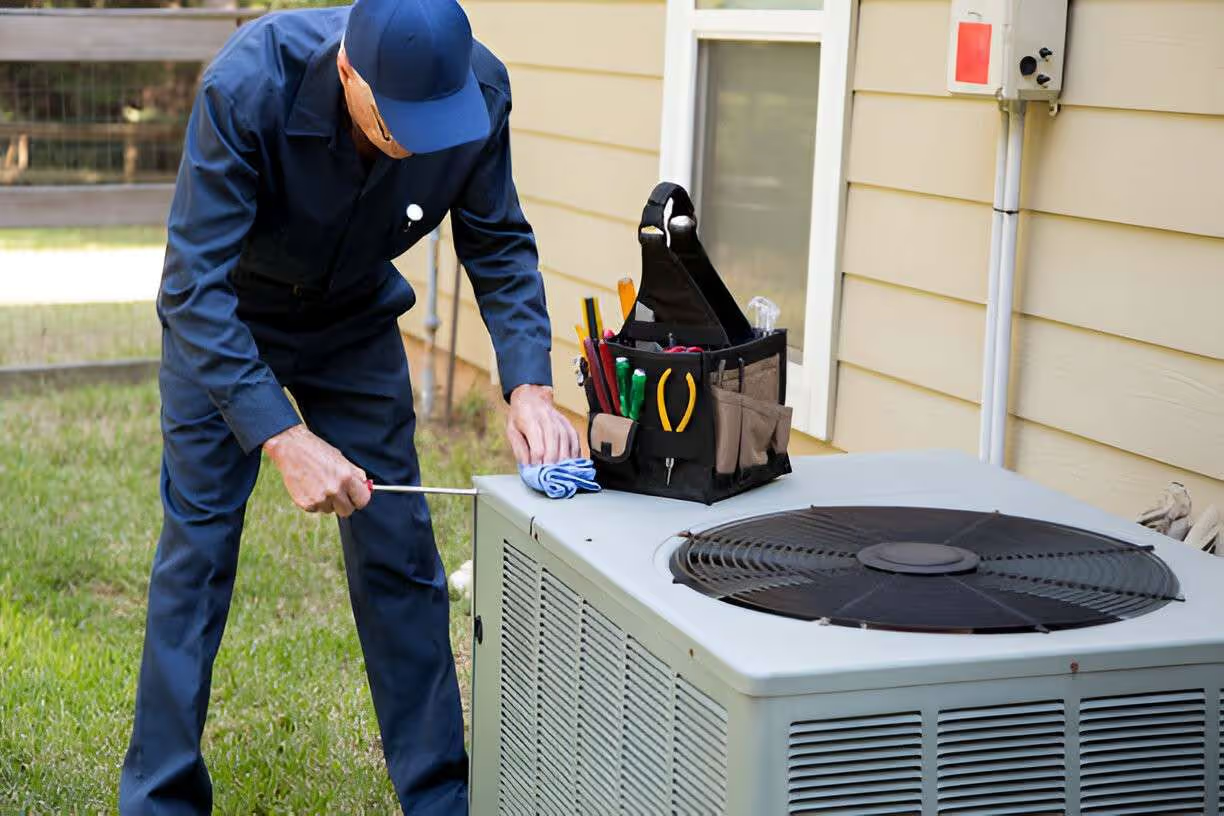Signs Your Air Conditioner is Losing Efficiency

Signs Your Air Conditioner is Losing Efficiency: A Homeowner's Guide
Is your air conditioner working harder than it should? Recognizing the early signs of decreased AC efficiency can save you from costly breakdowns, uncomfortable summers, and surprisingly high energy bills. This guide empowers you to identify common indicators that your cooling system is struggling, helping you make informed decisions to maintain optimal home comfort and energy savings. Don't wait for a complete system failure – learn how to spot the red flags and take proactive steps to restore your AC's performance.

Why Air Conditioner Efficiency Matters for Your Home
Your air conditioner is a significant investment in your home's comfort and value. When it operates inefficiently, it not only struggles to keep your home cool but also consumes more electricity, driving up your utility costs. An inefficient AC system is also more prone to wear and tear, shortening its lifespan and increasing the likelihood of expensive repairs. Understanding these signs is the first step toward preventive action, ensuring your system runs smoothly, reliably, and cost-effectively for years to come.
Key Signs Your AC System Is Struggling with Efficiency
Identifying these indicators early can prevent minor issues from becoming major problems. Pay close attention to these common warning signs:
1. Unexpectedly High Energy Bills
- What it means: If your electricity bills are steadily climbing without a corresponding increase in usage, your AC is likely working overtime to achieve your desired temperature. This could be due to a clogged air filter, refrigerant leak, or a failing component.
- Actionable insight: Compare current bills with previous months or years. If the jump is significant, it's a strong indicator of efficiency loss.
2. Weak Airflow from Vents
- What it means: A noticeable reduction in the force of air coming from your supply vents suggests a blockage or a problem with the fan motor or ductwork. Restricted airflow prevents proper heat exchange, forcing your AC to run longer.
- Actionable insight: Check for dirty filters first. If changing them doesn't help, the issue might be more complex, involving the blower fan or duct integrity.
3. Your AC Runs Constantly or Cycles Too Often (Short Cycling)
- What it means: An efficient AC should cycle on and off to maintain temperature. If it runs non-stop, it's struggling to reach the thermostat setting. Conversely, "short cycling" (turning on and off frequently) indicates that the unit isn't completing a full cooling cycle, often due to an oversized unit, refrigerant issues, or electrical problems.
- Actionable insight: Both scenarios point to an inability to cool effectively. Constant running leads to wear; short cycling is inefficient and often precedes a breakdown.
4. Uneven Cooling Throughout Your Home
- What it means: If some rooms are comfortably cool while others remain warm and stuffy, your system isn't distributing air evenly or cooling effectively. This can be due to duct leaks, improper insulation, or an undersized unit.
- Actionable insight: This is a clear sign of compromised performance, impacting your comfort and forcing the system to compensate inefficiently.
5. Strange Noises or Odors from the Unit
- What it means:
- Grinding/Squealing: Often points to worn-out motor bearings.
- Hissing/Bubbling: Could indicate a refrigerant leak.
- Clicking: Might be a relay issue or a sign of an impending electrical fault.
- Musty/Mildewy Smells: Suggests mold or mildew in the evaporator coil or ductwork, impacting air quality.
- Actionable insight: Any unusual sounds or smells should prompt immediate investigation, as they often signal mechanical problems or health hazards.
6. Water Leaks Around the Indoor Unit
- What it means: While some condensation is normal, excessive pooling or dripping water around your indoor unit or drain pan indicates a clogged condensate drain line, a frozen evaporator coil, or a damaged drain pan.
- Actionable insight: Leaks can cause water damage to your home and signify blockages that impede efficient operation.
Guiding Your Next Steps: Don't Let Efficiency Loss Linger
Recognizing these signs is crucial, but knowing what to do next is equally important. While some issues like dirty filters can be addressed with simple DIY maintenance, many of these indicators point to underlying problems that require professional diagnosis and repair. Ignoring them will only lead to further degradation of your system, higher energy costs, and potentially more expensive, extensive repairs down the line.
When to Contact a Professional: If you observe any of the above signs persistently, especially high energy bills, weak airflow that isn't filter-related, strange noises odors, or water leaks, it's time to call in an HVAC expert. Early intervention can prevent minor issues from escalating into major system failures, saving you significant money and discomfort.
Get Expert Air Conditioning Service You Can Trust
Don't let an inefficient air conditioner compromise your comfort or your budget. Our certified HVAC technicians specialize in diagnosing and resolving all types of AC efficiency issues. From thorough inspections and refrigerant leak detection to fan motor replacements and ductwork repairs, we provide reliable, long-lasting solutions. We're committed to restoring your AC's peak performance, ensuring your home stays cool and your energy bills remain manageable.
Ready to find out why your AC isn't performing? Contact us today for a comprehensive system check and expert advice.
Call us at (813) 756-3899 to schedule your service and experience the difference of a truly efficient cooling system. We're here to help you enjoy consistent comfort and peace of mind.
Service Areas


